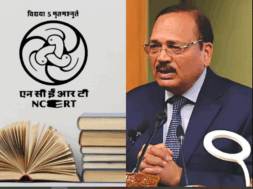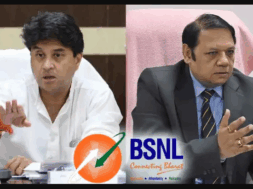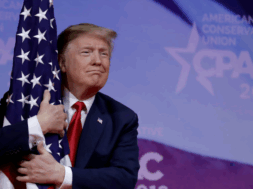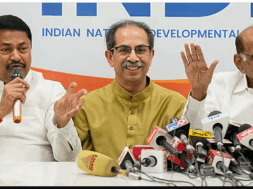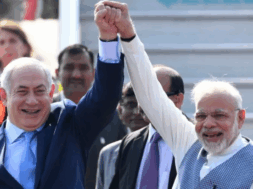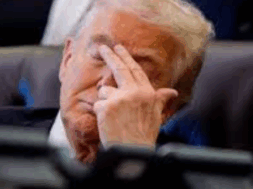
Modi Congratulates Starmer, Looks Forward to Improving UK – India Ties
Manas Dasgupta
NEW DELHI, July 5: The Prime Minister Narendra Modi was among the first few world leaders to congratulate the Britain Labour Party leader Keir Starmer on his victory in the general elections tasked with improving ties with India which had been tumultuous due to the Labour Party’s earlier stance on the Kashmir issue.
“I look forward to our positive and constructive collaboration to further strengthen the India-UK Comprehensive Strategic Partnership in all areas, fostering mutual growth and prosperity,” Mr Modi posted on X welcoming Mr Starmer as the next prime minister of the United Kingdom.
India would be sceptical over the Labour Party’s victory in the UK elections because of the confrontationist stance the party had adopted in the past on the Kashmir issue, which Mr Starmer had attempted to substantially reform even before the elections.
Soon after the Narendra Modi government abrogated Article 370 giving special status to Jammu and Kashmir in August, 2019, the British Labour Party, under the leadership of Jeremy Corbyn, passed an emergency motion that sought international observers must “enter” Kashmir, demanding the right of self-determination for its people. The motion also called for Corbyn to meet the high commissioners of India and Pakistan to ensure there was “mediation” and a potential nuclear conflict was avoided by restoring peace.
Their stance has been in stark contrast with the British government’s view that Kashmir was a bilateral matter between India and Pakistan. This did not sit well with India, which termed it an effort to “pander to vote bank’s interest.”
As the situation came to a head, it was Starmer who stepped in to defuse tensions. Starmer, realising how important ties with the world’s fastest-growing economy are, set out on a mission to fix the missteps made by his party in the past. His manifesto included a commitment to pursue a “new strategic partnership” with India, emphasizing the trade agreement.
The soon-to-be prime minister has promised to reset relations between the Labour Party and India, admitting that they dropped the ball in their approach to relations with the world’s most populous country.
Aware of the significance of UK’s ties with a giant growing economy like India, Starmer emphasised during meetings with the Indian diaspora and public addresses that Kashmir was India’s internal issue and will be resolved by both the neighbours. “Any constitutional issues in India are a matter for the Indian Parliament, and Kashmir is a bilateral issue for India and Pakistan to resolve peacefully,” he said during a meeting with Labour Friends of India toeing the line of the Indian government on the issue.
In fact, in his manifesto, he included a commitment to pursue a “new strategic partnership” with India, emphasising the trade agreement. As part of his poll campaigns, Starmer made several attempts to rebuild trust with the British-Indian community, including participating in Hindu festivals like Diwali and Holi.
Starmer’s outreach is not without cause. There are 1.9 million people of Indian origin residing in the UK, accounting for over 2.5 per cent of the overall population. Over the years, the British-Indian community — earlier considered staunch loyalists of the Labour Party — shifted to the Conservatives for a plethora of reasons.
Apart from disappointment over the Labour Party’s political positioning on India’s domestic matters, the decision of the Conservatives to field India-origin candidates — such as Sunak — marked a shift in the community’s loyalties. Some UK Indians have also complained that the party has focused more on poorer inner-city Pakistani and Bangladeshi communities than on them.
During meetings with the Indian diaspora and public addresses, Starmer affirmed that Kashmir is an internal issue and will be resolved by India and Pakistan. “Any constitutional issues in India are a matter for the Indian Parliament, and Kashmir is a bilateral issue for India and Pakistan to resolve peacefully,” he said during a meeting with Labour Friends of India.
This policy adjustment aims to rebuild trust with the British-Indian community and foster stronger business ties with India, a critical aspect of Labour’s international agenda.
The Labour Party, out of power for over a decade, has also outlined a foreign policy of “progressive realism,” emphasizing pragmatic approaches to global challenges such as climate change and international security. Starmer’s manifesto includes plans for a new strategic partnership with India, focusing on trade agreements and cooperation in technology, security, education, and environmental issues.
During a UK-India Week conference, Starmer said: “There are lots of issues in the Labour party where, over the last two years, we have openly taken the decision to change our party to look out to the world in a different way – and to recognise when it comes to India, what an incredible, powerful, important country India is … and to ensure that we have the right relationship as we go forward.”




